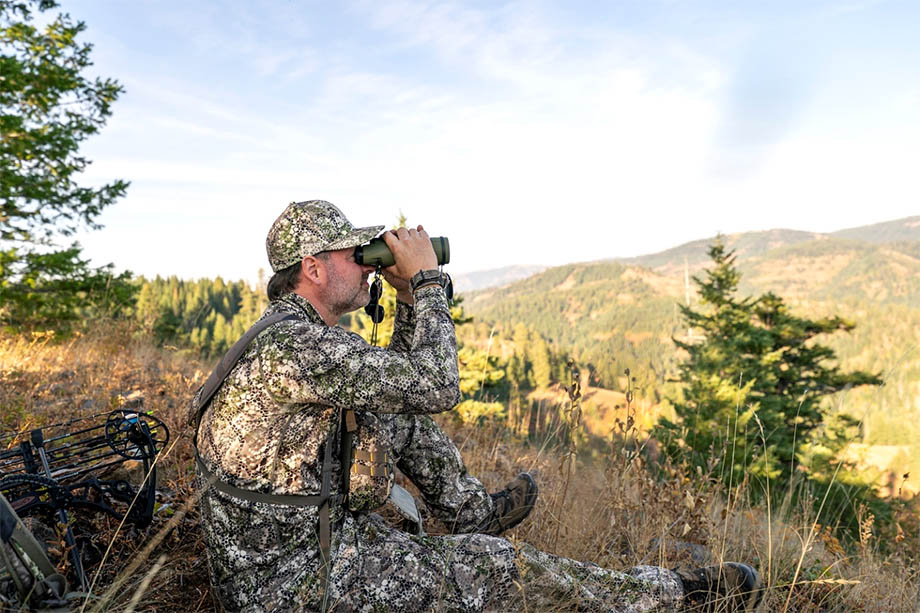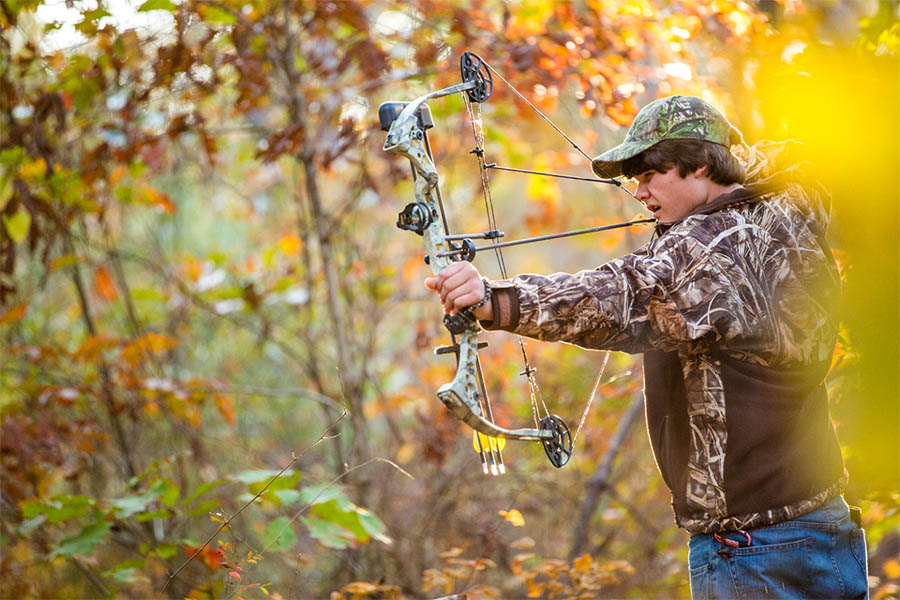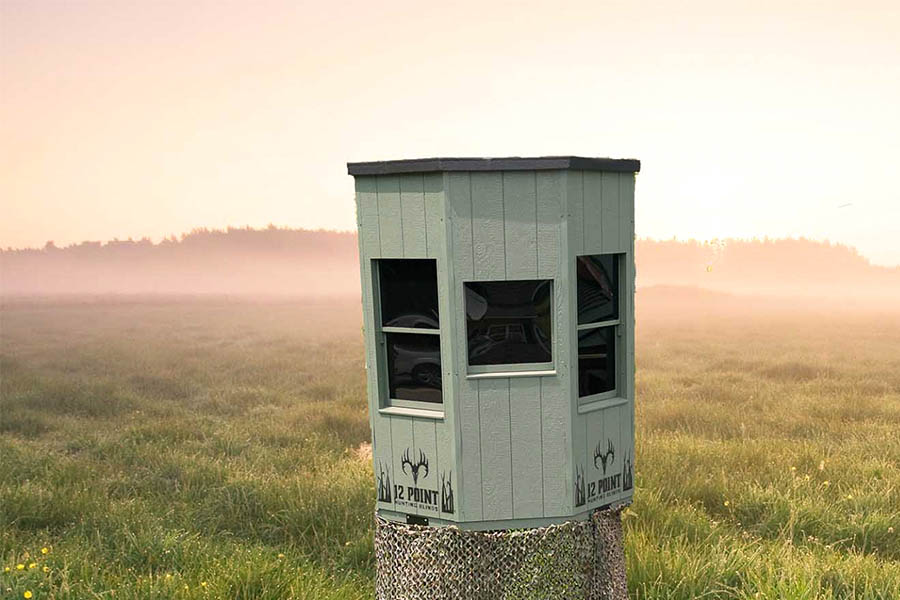Hunting With Firearms: Selecting the Right Gun and Ammunition for Your Hunt
Hunting has been a fundamental part of human civilization for thousands of years, providing food, sport, and a connection to the natural world. While there are various methods of hunting, the use of firearms remains one of the most popular and effective approaches. Hunting with guns requires careful consideration and selection of the right gun and ammunition to ensure a successful and ethical hunt.

Choosing the appropriate firearm and ammunition is crucial for several reasons. First and foremost, it directly impacts the effectiveness and humane nature of the hunt. Using the wrong gun or ammunition can lead to poor shot placement, wounded animals, and unnecessary suffering. Also, selecting the right equipment enhances safety for both the hunter and those in the vicinity. Understanding the nuances of different firearms and ammunition options allows hunters to tailor their gear to the specific game and hunting environment they will encounter. By selecting the right gun and ammunition, hunters can increase their chances of a clean, responsible, and successful hunt. Read our hunting tips below to get you started.
Understanding the Hunt
Different types of hunts require different approaches and equipment. Big game hunts, such as deer or elk hunting, often involve longer shots and require firearms with sufficient power and accuracy. Waterfowl hunting necessitates shotguns capable of delivering a spread of pellets to effectively target flying birds. Upland game hunting, on the other hand, may involve quick shots at fast-moving targets, necessitating shotguns or lightweight rifles. Within each of these options, there are also a wide variety of choices in terms of size and speed of ammunition.
The specific characteristics of the game being hunted influence the choice of firearm and ammunition. For instance, the size, weight, and behavior of the game species will dictate the appropriate caliber or gauge of the firearm. Additionally, the environment in which the hunt takes place, such as dense woods or open fields, may require different firearms or ammunition for optimal performance.

It is essential for hunters to be knowledgeable about local hunting regulations and restrictions. Different regions may have specific rules regarding firearms, ammunition types, and hunting seasons. Understanding and adhering to these regulations ensures legal and ethical hunting practices and helps preserve wildlife populations. It is advisable to consult local authorities or hunting organizations to obtain accurate and up-to-date information on hunting regulations in a particular area.
Choosing the Right Firearm
There are various types of firearms commonly used in hunting, each with its own advantages and suitable applications. Rifles are popular for big game hunting due to their long-range accuracy and power, although in some areas, hunting deer with a shotgun and slug is also popular and legal. Shotguns are versatile and commonly used for waterfowl, upland game, and small game hunting, as they can shoot a spread of pellets. Other firearms, such as muzzleloaders and handguns, have specific uses and are favored by some hunters for specialized hunting scenarios or seasons.
When choosing the right gun for hunting, several factors should be taken into account. Caliber or gauge is a crucial consideration as it determines the power and effectiveness of the bullet or shot. Action type, whether bolt-action, lever-action, pump-action, or semi-automatic, affects the firearm’s reliability and ease of use. Barrel length influences accuracy, maneuverability, and recoil control. Additionally, weight, stock type, and optics compatibility should also be considered based on personal preferences and hunting requirements.
Personal preferences and shooting abilities play a significant role in firearm selection. Factors such as comfort, ergonomics, and familiarity with a specific firearm platform can enhance shooting accuracy and confidence in the field. The intended game species must be considered to ensure the firearm is appropriate for the size and behavior of the game. A well-suited firearm that aligns with individual preferences and shooting abilities increases the chances of a successful and enjoyable hunting experience.

Regardless of which type of gun you are using, it is vital that you get some time in at the range to practice with each particular firearm. You do not want to be shooting your new hunting rifle for the first time out in the field.
Selecting Appropriate Ammunition
Selecting the right ammunition is also crucial for a successful hunt. Just as with selecting a firearm, different game species require specific types of ammunition to ensure effective and ethical kills. Using inadequate ammunition can lead to wounded animals, unnecessary suffering, or missed opportunities. Understanding the characteristics and performance of different ammunition options is essential for making an informed decision.

Ammunition comes in various types and configurations, each designed for specific hunting purposes. For rifles, different bullet types such as soft-point, hollow-point, or ballistic tips offer different terminal effects and penetration capabilities. Shotguns, on the other hand, use different shot sizes and types of shells, such as birdshot, buckshot, or slugs, depending on the target species and hunting conditions. Understanding the properties and applications of these ammunition types helps hunters select the most suitable option for their specific hunting needs.
Ammunition ballistics refers to the science of how ammunition performs in flight and upon impact. Factors such as muzzle velocity, trajectory, bullet drop, and energy transfer influence shooting accuracy and game penetration. Understanding these ballistics characteristics allows hunters to make informed decisions regarding ammunition selection based on the specific shooting distances, terrain, and game species they anticipate encountering during their hunt. By matching the ammunition ballistics to the hunting conditions, hunters can improve their shooting accuracy and ensure effective game takedown.
Additional Factors
The fit and ergonomics of a firearm are often overlooked but are crucial considerations for a successful hunt. A properly fitted firearm ensures comfortable handling, optimal control, and improved accuracy. Factors such as stock length, grip shape, and overall balance should be considered to ensure the firearm feels natural and comfortable in the hunter’s hands. Trying out different firearms and seeking professional guidance can help identify the best fit for individual body proportions and shooting style.
The hunting environment plays a significant role in firearm and ammunition selection. Different environments, such as dense forests, open plains, or marshlands, require different firearms and ammunition characteristics. For example, in thickly wooded areas, a compact firearm with a shorter barrel length may be more maneuverable, while in open fields, a longer-range rifle may be advantageous. Additionally, weather conditions such as rain, snow, or extreme temperatures can influence firearm performance and require appropriate maintenance and protection.

Regular maintenance and care of firearms and ammunition are essential for optimal performance and longevity. This includes cleaning, lubricating, and inspecting the firearm after each use, as well as proper storage to prevent damage or corrosion. Likewise, ammunition should be stored in a cool, dry place to maintain its integrity. Regular maintenance and inspection help ensure that firearms and ammunition are in reliable working condition, reducing the risk of malfunctions or accidents during a hunt.
Considering factors such as firearm fit, environmental conditions, and proper maintenance can enhance the overall hunting experience, improve safety, and maximize the effectiveness of the chosen firearm and ammunition. It is important for hunters to pay attention to these additional factors to optimize their equipment’s performance and increase their chances of a successful and enjoyable hunt.
Legal and Ethical Considerations
Hunting is a regulated activity, and it is essential for hunters to understand and abide by the laws and regulations governing their hunting activities. These regulations may include hunting seasons, bag limits, specific hunting zones, and restrictions on firearms and ammunition types. Respecting and adhering to these regulations helps maintain sustainable wildlife populations, conserve habitats, and ensure the safety of both hunters and the public. It is the responsibility of every hunter to familiarize themselves with the local hunting laws and regulations applicable to their hunting area.
Ethical hunting practices are based on principles of fair chase, respect for the game, and humane treatment of animals. Hunters should strive to make clean and ethical kills, ensuring minimal suffering for the game. This involves taking well-placed shots within the effective range of their firearm and being prepared to track and recover wounded animals. Additionally, hunters should follow ethical guidelines such as avoiding wanton waste by utilizing the harvested game to the fullest extent possible. Respecting the game, the environment, and other hunters promotes a positive image of hunting and contributes to the long-term sustainability of wildlife populations.

By understanding and adhering to both legal regulations and ethical principles, hunters can ensure responsible and sustainable hunting practices that protect wildlife populations, preserve ecosystems, and maintain the integrity of the hunting tradition. It is essential for hunters to approach their hunts with a strong sense of ethical responsibility and strive to be stewards of the natural world.
Wrapping Up
Choosing the appropriate firearm and ammunition is essential for a successful and ethical hunting experience. The right combination of gun and ammunition ensures effective and humane kills, enhances safety and increases the likelihood of a successful hunt. It allows hunters to adapt to different hunting scenarios, game species, and environmental conditions, maximizing their chances of a clean shot and a successful harvest.
Selecting the right gun and ammunition can be a complex process, influenced by various factors such as hunting type, game species, and personal preferences. To make informed decisions, hunters should conduct thorough research, consult reputable sources, and seek expert advice from experienced hunters or firearms professionals. By doing so, they can gain valuable insights, learn from other’s experiences, and make educated choices that align with their specific hunting needs.
Responsible and ethical hunting practices are important. Hunters should approach their hunts with respect for the game, adherence to legal regulations, and a commitment to ethical principles. By selecting the right gun and ammunition, considering additional factors such as firearm fit and environmental conditions, and practicing proper maintenance, hunters can contribute to the preservation of wildlife populations, habitats, and the hunting tradition itself.
Hunting with firearms is a privilege and a responsibility. When hunters choose the right gun and ammunition and conduct themselves ethically in the field, they can enjoy a rewarding and fulfilling hunting experience while upholding the values of conservation, respect, and stewardship.






